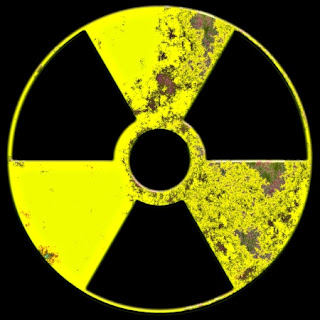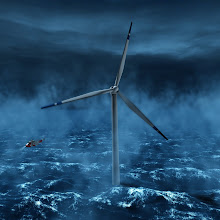
As I stated in an earlier post, solar energy drives many of the renewable energy sources on the Earth, many of which are incredibly powerful. All that solar power is generated through nuclear fusion, a type of nuclear reaction that occurs in the Sun's core. By that reasoning, nuclear power could provide untold amounts of energy, and the world has followed that reasoning, with one hundred and four nuclear power plants in the United States alone. In fact, scientists are still researching new nuclear technology, with the development of small-scale nuclear reactors, which can be constructed in half the construction time of a regular nuclear reactor, and General Fusion has developed Magnetized Target Fusion, a process that may resolve one of the many obstacles facing nuclear fusion. If the technology were advanced enough, nuclear power could become a stable energy source in the future.
However, nuclear power is disadvantageous for many reasons, among them recently projected costs of five to twelve billion dollars per power plant, double to quadruple that of earlier estimates. Additionally, if you look at my post "The Earth, Energy, and Politics," you will find that ninety-five percent of nuclear fuel can be recycled. However, as the nuclear fuel is repeatedly recycled, the amount of usable nuclear fuel gradually decreases, eventually reaching levels insufficient to satisfy the energy demands of the world. Most importantly, nuclear power is detrimental to the environment. A study conducted by the Massachusetts Institute of Technology in 2003 found that one thousand five hundred new nuclear reactors would be needed by the middle of the century to even begin reducing greenhouse gas emissions. Not only that, but nuclear power plants generate several wastes. As an illustration, the Palo Verde Nuclear Generating Station in Arizona produces over fifty-five tons of nitrogen oxide. Combined with the other drawbacks, this pollution makes nuclear power seem similar to fossil fuels, despite the immense differences in potential energy. However, the world should worry about the much greater, environmental danger of fossil fuels instead of the dangers of nuclear power, since humanity has only one Earth, and the planet should be used wisely.


2 comments:
Tommy,
Nuclear power seems like a very good alternative to fossil fuels because it generates so much energy but they can also be very dangerous and create radioactive waste. What would be the consequences of a major nuclear disaster and how badly would they affect the US and the world? Would the benefits of nuclear power and reduction of fossil fuel use be worth the possibility of a nuclear disaster.
Caitlin,
I did not conclude that nuclear power was a good alternative, given the production of other, non-radioactive wastes. A major nuclear disaster is extremely unlikely, but depending on the location of that disaster, there would likely be tremendous shockwaves within foreign relations between countries around the entire world.
Tommy
Post a Comment